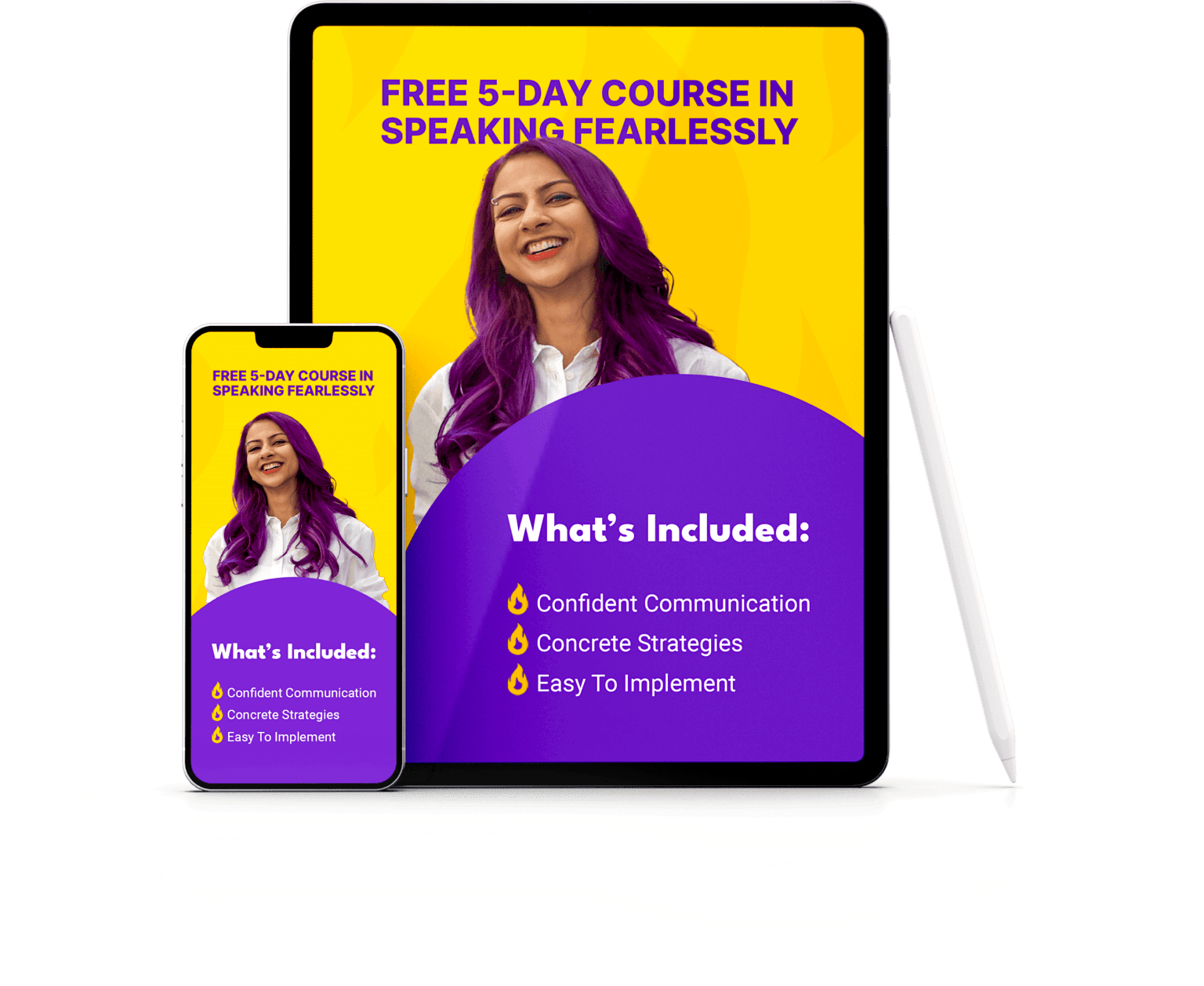“Great idea, Nausheen – I’ll add it to my slides right now!”
Not so fast.
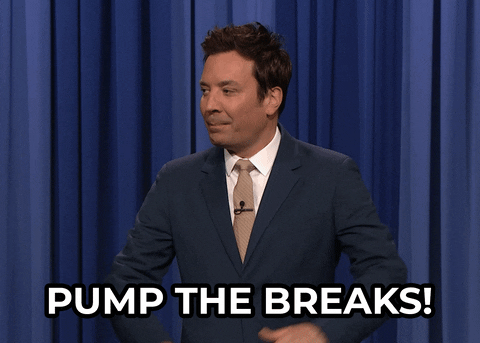
I’ve helped hundreds of clients with their presentations, and nearly all of them want to jump the gun and go straight to working on their presentation slides. But leaping straight to execution by creating slides without a strategy makes your presentation much less impactful.
Using a strategy to structure your thoughts, engage your audience and effectively express your ideas can ensure you deliver the best presentations that your team, management and clients understand and remember. I don’t want to just give you a list of tools to use, but strategies based on 17 years of experience that can help shape your ideas into powerful presentations that inspire people to take action.
Table of Contents
What do I mean by “presentation tools”?
There are three factors at play when you deliver a presentation:
- How you speak (your delivery).
- How you structure your ideas (your presentation content and flow).
- What kind of audio visual content you’re using to support your ideas (your presentation slides).
I’ve already shared with you impactful speaking tools to improve your delivery skills. This article will dive into the strategies that can make the content and flow of your presentations more powerful and the tech tools you can use (and how to use them).
How to structure your presentation
I’m going to let you in on a secret: my signature approach to designing presentations that has enabled my clients to present in front of thousands of people and win important deals and contracts.
Here’s my process:
1. Start with a brain dump in a single document. Add all of your ideas about what the presentation should be like – what you want to include, what kind of images, quotes or stories you’re thinking of, what data you want to add. It’s OK if there’s no rhyme or reason to it.
2. Separate the document into specific sections: intro, body and conclusion. Decide how you want to introduce your presentation, figure out the different sections and end strong. Consider different ways to start the presentation: you can do a simple intro, a cold open with a story or a thought provoking question or quote.
4. Shape each idea into two parts: what you want to say, and what should go on the slide. This is crucial. Don’t fall into the temptation of adding everything you want to say directly to a Powerpoint slide. The truth is – what’s on the slide should only support, illustrate or emphasize what you’re saying. By separating your ideas into what you want to say and what should go on the slide, you’re ensuring that you never start reading off the slides.
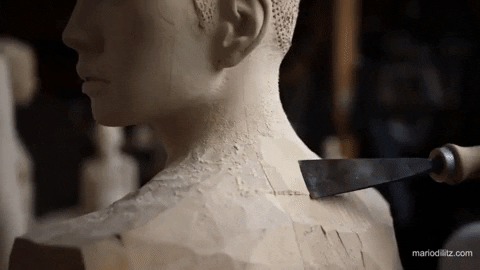
5. Create the slides. Use bullet points for text. Come up with interesting ways to visualize data and key takeaways. (I share specific tips on how to bring your presentation to life in the next section).
6. Start practicing/rehearsing early on. Yes, even before the slides are finalized. By practicing when your slides are 60-70% done, you can quickly find out what you forgot and whether the flow works or not. It also helps you feel confident about your presentation.
7. Practice/iteration. Start practicing strategically – recording your practices instead of doing them in front of a mirror. Visualize the audience. Aim to present exactly the way you’ll present the real thing.
8. Make sure you warm up before the presentation. Not only do you need to warm up your voice, but you should also warm up the audience themselves.
Strategies to create rockstar presentation slides
Whether you use PowerPoint, Canva, or Google Slides, these techniques will help you organize and create presentations that are impactful, precise and powerful.
1. Use as little text as possible
One of the biggest mistakes people make when preparing a presentation is relying too heavily on slides. Here’s the thing: if your audience can absorb the entire presentation by reading your slides, you don’t need to be there! Instead, use the words on your slides as prompts to help you remember your next point.
Work in bullet points so that you can have enough information to go on and you won’t read your slides word for word. That’s how all the presentation rockstars do it!

2. Change up the formatting
As they say, variety is the spice of life. Keep it spicy by changing up the formatting for your slides. Did you just show a text-heavy slide? Then choose a simple format for your next one, whether it’s a single graphic or picture, or a relevant quote.
(And don’t think that you can reuse the same image and text format for your slides over and over – your audience will tune out!)

3. Don’t make the slides too busy
Adding too many elements to your slides can be very distracting and keep you from creating a consistent brand. For that reason, you should avoid using more than three colors in your presentation. Don’t use more than two fonts, either. By keeping it simple, you’ll allow the audience to focus on your presentation instead of your slides.
4. Think of new ways to visualize things
Imagine you’re designing a presentation about working as a team. Instead of showing a company photo, try disrupting expectations and showing an image of an orchestra as an analogy.
Another idea: instead of saying that your AI tool is three times faster than its competitors, show a graph that depicts the idea. Presentation is not just telling – it’s also showing.

What could you use this image to visualize?
5. Build in specific interactions with the audience
It’s not a one-way lecture – the 90s are over! Don’t just wait for the audience to ask a question or treat audience interaction as a “nice to have”. Make audience interaction an organic part of your presentation itself by including a question for the audience in your slides.
I recommend engaging the audience every 5-7 slides – so aim to build in an engagement activity regularly throughout your talk.
Add yes or no questions and ask the audience to raise their hands. Or introduce an audience poll by showing them multiple options and asking them to choose one.
6. Relate to the audience by adding cultural references
People typically expect presentations to be dull. Surprise and engage the audience by showing up with fresh quotes, case studies, quirky images, and sources not directly related to your line of work.
For example, if you’re presenting the perfect sales call, you can show a masterpiece by a Renaissance painter to illustrate the skill needed to make a masterpiece sales call. Doing this breaks the audience away from the monotony of everyday business, making the experience more relatable and enjoyable.
7. Be mindful about how you use videos
Thinking about adding a video to your presentation? Great idea – but aim to incorporate it in the most impactful way.
Here’s what happens when you add a video to your presentation: people stop listening to you and watch the video instead. Depending on how long it is, it may or may not retain their attention. Additionally, you disrupt your flow of thoughts.
If you’re doing a longer presentation (like a day-long workshop), it’s OK and a welcome break to stop and show a short video.
But if you’re delivering an hour-long presentation, I recommend you show a video without sound and talk over it. By doing this, you’re using the video to support your point in the background without breaking your flow.
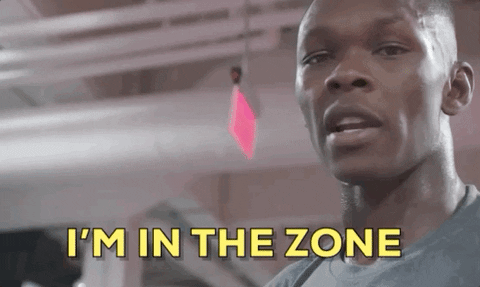
Pro tips on using PowerPoint, Canva, and Google Slides
Now that it’s time to choose a platform to design your slides in – I’d like to share with you pro tips for using the three most common platforms right now:
PowerPoint
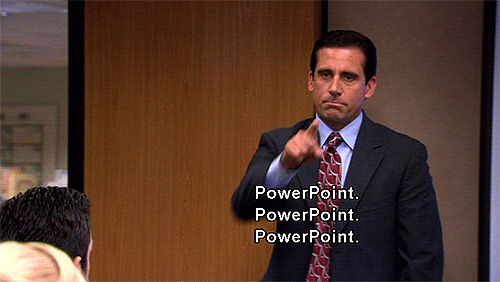
This old-school software is what all the seasoned CEOs cut their teeth on. Inject life into your presentations with these fun ideas:
1. Animation within slides: If you have multiple points on a slide, you can animate them one by one so they appear as you speak about them. This prevents the audience from reading ahead.
2. Color code sections: You can color code specific sections of your presentation to give the audience a visual clue as to which section they’re currently at.
3. Single quote slides: If you have a slide with a quote – instead of a plain background, consider adding a picture at low opacity, so it gives the audience a more textured experience.
Canva
Canva is the best way to “design” presentations without being a designer. You can do so much with this software – here are a few tips to get you started.
1. Adding in custom colors: You can add custom colors to your “Brand Kit.” This way you’ll always stay on track to creating slides that have your color palette instead of using too many colors.
2. Using complementary fonts (font pairing): Have you noticed that some fonts don’t look great together? By using fontjoy.com, you can find fonts that go well with each other.
3. Background remover: Planning to add images of yourself to the presentation? Background remover is a great way to keep the focus of the image where it should be!
Google Slides
This option is part of the G-Suite and is a great choice for remote teams who want to collaborate on a presentation.
1. Using templates: Do you like to mix things up a little? Then check out Slidesgo for some quirky presentation templates.
2. Aligning elements: Select the elements you want to align, right-click, and then choose how you want them to be aligned. This helps your presentation look polished and professional.
3. Animating words and images: Right click on the word or image you want to animate, then select the way you want it to move.
AI tools for presentations
AI tools can now help you create entire presentations from scratch. While I can’t guarantee that you’ll get presentations that will work out of the box – this is a great option for getting a head start on your slides.
1. Beautiful.AI. This software enables you to create a formatted presentation using just your notes. Just choose a template, add notes, and voila!
2. Slidebean. Create pitch decks in minutes with the help of AI. Slidebean comes with built-in analytics so you can see the time you’ve saved.
3. Emaze. This content creation software offers variety like Canva with the convenience of AI. It also has interactive 3D storytelling and data visualization capabilities.
Conclusion
If you’re a “slide-reader,” stumble through your presentations, or wrap up the presentation so early that your audience’s heads are spinning, you can improve! By using specific techniques and tools, you can strengthen your presentations, exude confidence instead of nervousness, and form a bond between you and the audience.
Still not sure where to start and want to work with me directly? Contact me for a tailor-made coaching experience.

